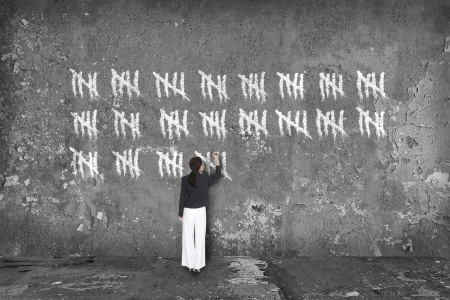During this unprecedented era, many of us find ourselves restricted to our homes, alone or with loved ones, for an indefinite period of time. We feel scared and anxious, stressed, frustrated and even bored. Although these days, weeks and possibly months ahead may seem bleak, the opportunities for gratitude, blessings and joy persist.
As two rabbis with three sweet, curious children, we constantly strive to find ways to infuse meaning into both the ordinary and extraordinary, as well as bring comfort and peace to worried young minds and hearts. When the governor of Ohio recently announced a three-week long shut down of all K–12 schools (which we support whole-heartedly), it quickly dawned on us that those three weeks would lead directly into Passover—turning a three-week long hiatus from in-person school, to at least five. Not to mention, having our delightful trio home for Passover preparations (at least we’ll have extra hands to carry dishes and pots up from the basement!). Thinking ahead to Passover reminded us of the upcoming counting of the Omer, the day-by-day numbering of the seven-week period leading from the redemption from slavery, commemorated on Passover up to Shavuot’s celebration of the receiving of the Torah.
Just as we purposely count up those 49 days every year, so too we offer this way of counting up toward the ultimate in-person, regathering of our many communities. Since this Monday, March 16, is our children’s first official day without in-person learning, we will be commencing our family’s count-up that evening around bedtime:
ספירת ההסגר – Counting of the Quarantine
In an effort to focus on the things that make our days meaningful—the moments that make our days COUNT, we choose to end our day by counting the quarantine. Gather your loved ones, either in person or virtually. Take a few deep breaths. Have each person share at least one instance of gratitude today. While filled with thoughts of appreciation, recite the following together:
הנני מוכן ומזומן לקיים מצות עשה של פיקוח נפש כמו שכתוב בתורה ״ובחרת בחיים.״
Hineni mukhan umzuman l’kayeim mitzvat aseih shel pikuakh nefesh, k’mo shekatuv baTorah: “uvakharta bakhayyim.”
Here I am, actively ready to fulfill the mitzvah of saving lives, as the Torah teaches, “and you shall choose life.”
ברוך אתה ה״ אלהינו מלך העולם העונה בעת צרה.
Barukh atah Adonai Eloheinu melekh ha-olam, ha-oneh b’eit tzarah.
Blessed are You, Adonai our God, Ruler of the Universe, The One who answers us in our times of crisis.
היום יום אחד להסגר.
Hayom yom ekhad lahesger.
Today is the first day of the quarantine.
After the blessing has been recited and the day counted, choose a physical reminder of the completed day, such as:
- A sticker on a calendar
- Marbles in a jar
- Coins in a tzedakah box (see-through preferred)
- Jumping jacks corresponding to the days
- Find something in your house that you have the same number of
Although none of us yet knows when this time of quarantine will end, we hope and pray that it will be soon, that God will hear our prayers for healing, and will bring us and our children back to a time where can all be normally social, instead of socially distant.
———————————-
The intention is to count in a similar way that we will be counting the Omer. First we count the days, then the weeks, noting that each is important and matters equally. Below are some more examples of how to count the days and weeks—each person should feel free to choose whether to count in Hebrew, English or both.
Day Two
היום שני ימים להסגר
Hayom sh’nei yamim lahesger.
Today is the second day of the quarantine.
Day Seven
היום שבעה ימים, שהם שבוע אחד להסגר
Hayom shiv’ah yamim, sheheim shavuah echad lahesger.
Today is the seventh day, which is one week of the quarantine.
Day Seventeen
היום שבעה-עשר יום, שהם שני שבועות ושלושה ימים להסגר.
Hayom shiv’ah asar yom, sheheim sh’nei shavu’ot u’shloshah yamim lahesger.
Today is the seventeenth day, which is two weeks and three days of the quarantine.












